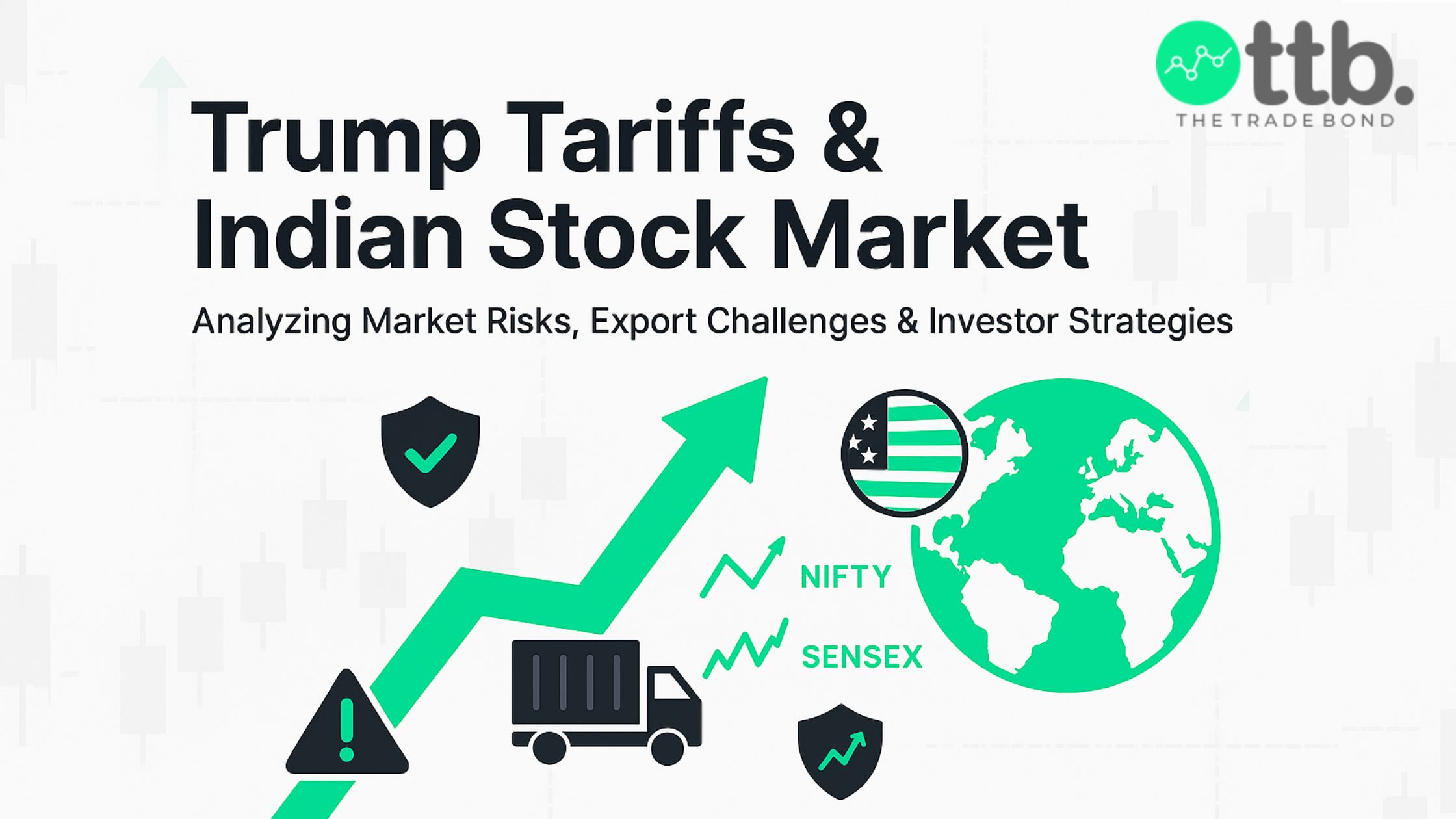Impact of Trump Tariff News on Indian Stock Market

News Impact of Trump Tariffs
The impact of Trump tariff news on the Indian stock market is becoming a hot topic after Donald Trump’s call for the EU. He called and asked to impose 100% tariffs on India and China. This call has created a huge impact globally. For Indian investors, this isn’t just political news but a signal that market trends could change sharply. Such tariffs can hurt key sectors, reduce exports, and add volatility to indices. Traders and investors must stay cautious, as this development may reshape strategies. It’s a reminder that global politics often decides market direction.
Which Indian sectors are most impacted by tariff news?
The EU is one of India’s most important trading partners, especially for textiles, auto components, pharma, and engineering goods. If tariffs of this magnitude actually come into force, Indian goods would immediately lose cost competitiveness in Europe.
Investors who tracking the Indian stock market, this translates into potential earnings cuts for listed exporters and rising volatility in indices. In this kind of situation, traders often look towards a SEBI registered advisor or a share market advisor to navigate unsteady markets with informed guidance.
Sector-Wise Impact of Trump Tariff News on Indian Stock Market
1. Export-Oriented Stocks Under Pressure
Textiles & Apparel: Export hubs like Tiruppur could face reduced orders. Companies such as Arvind or Welspun would feel the pinch first.
Auto Components: Firms like Motherson Sumi and Bharat Forge may see earnings pressure from weaker EU demand.
Pharma: While medicines are essential, sentiment-driven selling could still affect names like Sun Pharma or Cipla.
2. IT & Services
Indian IT majors like Infosys, TCS, and Wipro may not face tariffs directly, but if EU growth slows due to trade disputes, outsourcing demand could soften.
3. Currency & Macro Factors
When exports are less, the rupee loses value against dollar. Due to this imports like crude oil will become more costlier and also raise prices of other fuels in India.
4. Safe-Haven Plays
Whenever trade tensions rise, investors shift towards domestic-focused sectors. FMCG, banking, and infrastructure tend to hold better. This is where advice from the best equity research analyst in India can help investors rotate portfolios wisely.
Government Response: Cushioning the Blow
India isn’t sitting idle. The government has rolled out a ₹25,000 crore Export Promotion Mission, reinstated the RoDTEP scheme (tax refunds for exporters), and is actively negotiating a free trade agreement with the EU. The government approves for more marine exports, it will reduce the impact of extra tariffs. For retail traders, this kind of situation is difficult because of the effect of global changes in the market. That’s why they look for guidance from registered professionals like an options trading tips provider or a reliable stock market advisor. These experts’ planning helps traders know where to invest when market trends shift.
What Investors Should Focus On
The impact of Trump tariff news on Indian stock market will likely play out in phases:
Short Term: Expect volatility, selling pressure in export-heavy sectors, and currency weakness.
Medium Term: Government relief measures and market diversification could soften the blow.
Long Term: India’s domestic growth story remains intact, but investors must stay nimble.
In such uncertain market conditions, it’s better to take help of a SEBI-registered advisor who follow strict regulatory rules. Getting insights from the best equity research analyst in India is very helpful. They can help you to find good investment opportunities and balance risk.
Final Words
These tariff threats remind us that markets depend not only on numbers but also on policy shifts and global politics. This is where the impact of Trump tariff news on the Indian stock market is a clear example. For traders and investors, the lesson is simple: stay alert, seek professional advice when needed, and be ready to rotate between vulnerable and defensive sectors.
Because in a market where politics and economics collide, the right stock market advisor or option tips provider can make the difference between panic-driven exits and well-planned strategy.
FAQ's
How do tariffs affect the stock market?
Tariffs increase trade costs, which can hurt company profits and push certain sectors lower, making markets more volatile.
What should investors do during tariff-related uncertainty?
Investors should stay updated, consult professionals like a SEBI registered advisor, and shift funds from vulnerable sectors to safer ones.
Can professional advisors help during global trade tensions?
Yes, professional advisors and equity research analysts can guide capital allocation and suggest strategies to balance risks with opportunities.

